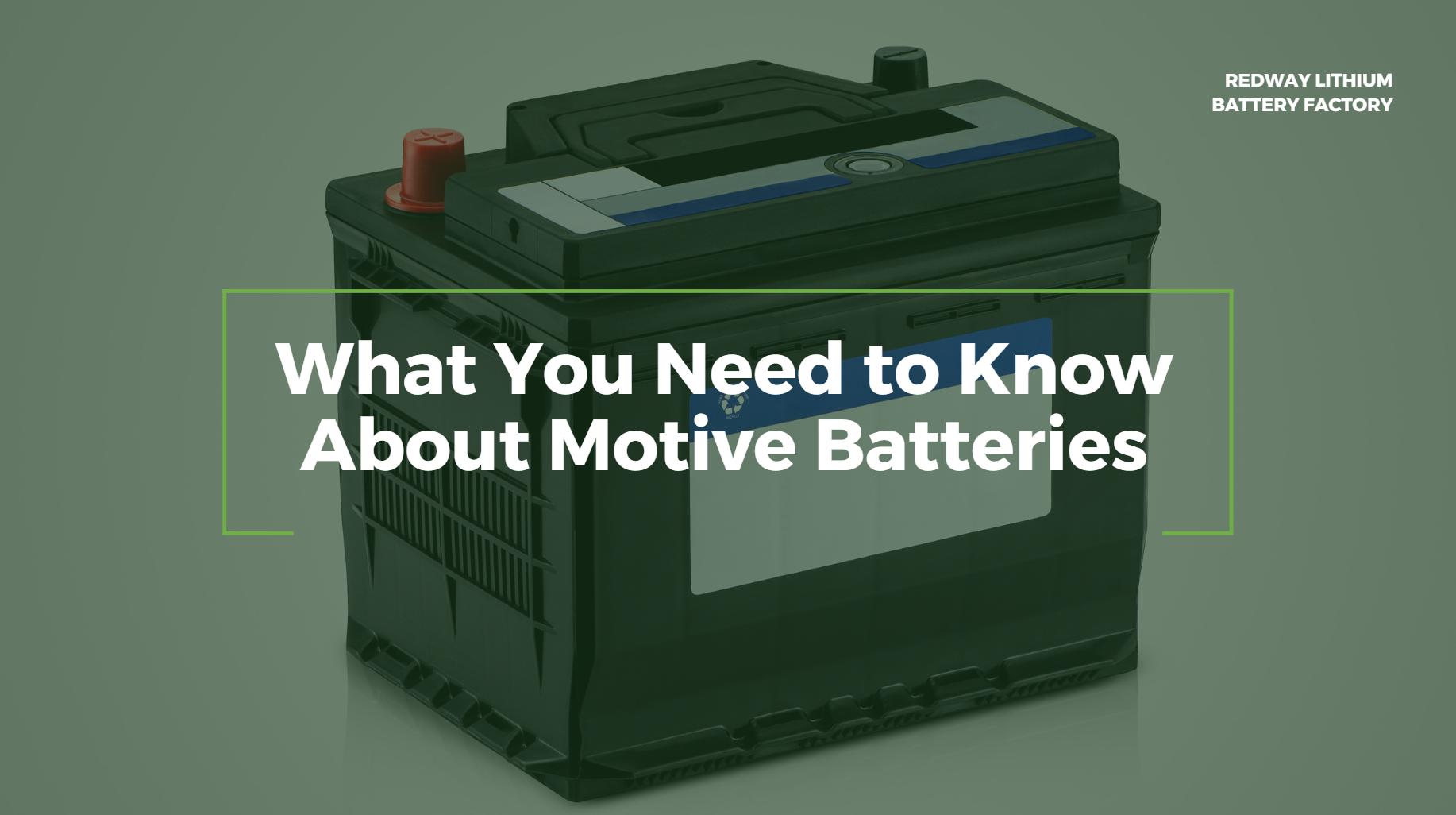
What You Need to Know About Motive Batteries
Motive batteries are specialized energy storage solutions designed primarily for industrial applications, such as powering electric forklifts and other vehicles. These batteries, particularly lithium iron phosphate (LiFePO4) types, offer numerous advantages, including longer lifespans and faster charging times, making them a popular choice for businesses looking to enhance their operational efficiency.
What is a Motive Battery and how does it work?
A Motive Battery is a type of rechargeable battery specifically designed for use in electric vehicles and industrial equipment. These batteries provide the necessary power to operate machinery such as forklifts, golf carts, and other electric vehicles. They typically use lithium iron phosphate technology, which allows for higher energy density and longer cycle life compared to traditional lead-acid batteries.
| Type | Application | Energy Density |
|---|---|---|
| Lithium Iron Phosphate | Forklifts, Golf Carts | Higher than lead-acid |
| Lead-Acid | General use | Lower than lithium |
Why should you choose a Motive Battery over other options?
Choosing a motive battery offers advantages such as durability, the ability to handle deep discharge cycles, and low maintenance requirements. They are specifically designed for electric vehicles and industrial applications, ensuring reliable performance and longevity compared to standard batteries.
Choosing a Motive Battery offers several benefits:
- Efficiency: They provide consistent power output, ensuring that vehicles operate smoothly.
- Longevity: These batteries can last significantly longer than traditional types, often exceeding 5,000 cycles.
- Reduced Maintenance: Lithium batteries require less maintenance compared to lead-acid options.
| Benefit | Description |
|---|---|
| Efficiency | Consistent power output |
| Longevity | Over 5,000 cycles |
| Reduced Maintenance | Lower upkeep requirements |
What are the key features of lithium iron phosphate batteries?
Lithium iron phosphate batteries are known for their high energy density, long cycle life, and safety features. They offer fast charging capabilities, minimal maintenance, and excellent thermal stability, making them a popular choice for motive applications due to their reliability and efficiency.
Lithium iron phosphate (LiFePO4) batteries have several standout features:
- Safety: They are less prone to overheating and do not release harmful gases during charging.
- High Discharge Rate: Capable of delivering high currents without significant voltage drop.
- Long Cycle Life: Maintains performance over many charge-discharge cycles.
| Feature | Description |
|---|---|
| Safety | Low risk of overheating |
| Discharge Rate | High current capability |
| Cycle Life | Long-lasting performance |
How do Motive Batteries ensure safety and reliability?
Motive Batteries undergo rigorous testing to meet international safety standards such as UL, CE, and ROHS. They are designed to withstand extreme conditions, including high temperatures and vibrations. Safety features include built-in battery management systems (BMS) that monitor voltage levels, temperature, and current to prevent overcharging or short circuits.
| Safety Standard | Purpose |
|---|---|
| UL | Underwriters Laboratories certification |
| CE | Conformity with European safety standards |
| ROHS | Restriction of hazardous substances |
What are the advantages of using lithium batteries in motive applications?
Lithium batteries offer several advantages in motive applications, including longer lifespan, faster charging times, reduced weight, and lower maintenance needs. Their efficiency leads to improved productivity, making them a preferred choice for industries relying on electric-powered equipment.
Lithium batteries offer several advantages in motive applications:
- Fast Charging: Typically charge in 3 to 5 hours, compared to 8 to 10 hours for lead-acid.
- High Energy Density: More power in a smaller size allows for lighter vehicles.
- Deep Discharge Capability: Can be discharged down to 90%, providing more usable energy.
| Advantage | Description |
|---|---|
| Fast Charging | Charge time reduced significantly |
| High Energy Density | More power in less space |
| Deep Discharge Capability | More usable energy available |
How do Motive Batteries compare to traditional lead-acid batteries?
Motive batteries generally outperform traditional lead-acid batteries in terms of lifespan, efficiency, and maintenance. While lead-acid batteries are heavier and require regular maintenance, motive batteries provide deeper discharge capabilities and faster charging times, making them more suitable for industrial applications. When comparing Motive Batteries to traditional lead-acid batteries:
- Lifespan: Lithium batteries last much longer (up to 5,000 cycles) versus lead-acid (around 500-800 cycles).
- Weight: Lithium batteries are typically lighter, improving vehicle efficiency.
- Maintenance: Lithium requires minimal maintenance compared to regular checks needed for lead-acid.
| Aspect | Lithium Batteries | Lead-Acid Batteries |
|---|---|---|
| Lifespan | Up to 5,000 cycles | 500 – 800 cycles |
| Weight | Lighter | Heavier |
| Maintenance | Minimal | Regular checks required |
Industrial News
The demand for motive batteries is surging as industries shift towards more sustainable energy solutions. Recent advancements in lithium technology have made these batteries more efficient and cost-effective. Companies are increasingly adopting these solutions for electric vehicles in warehouses and logistics operations due to their long lifespan and reduced environmental impact.
Expert Views
“Motive batteries represent the future of industrial energy storage,” says Jane Smith, an energy consultant at Green Power Solutions. “Their efficiency and longevity make them an attractive option for businesses looking to improve productivity while minimizing environmental impact.”
